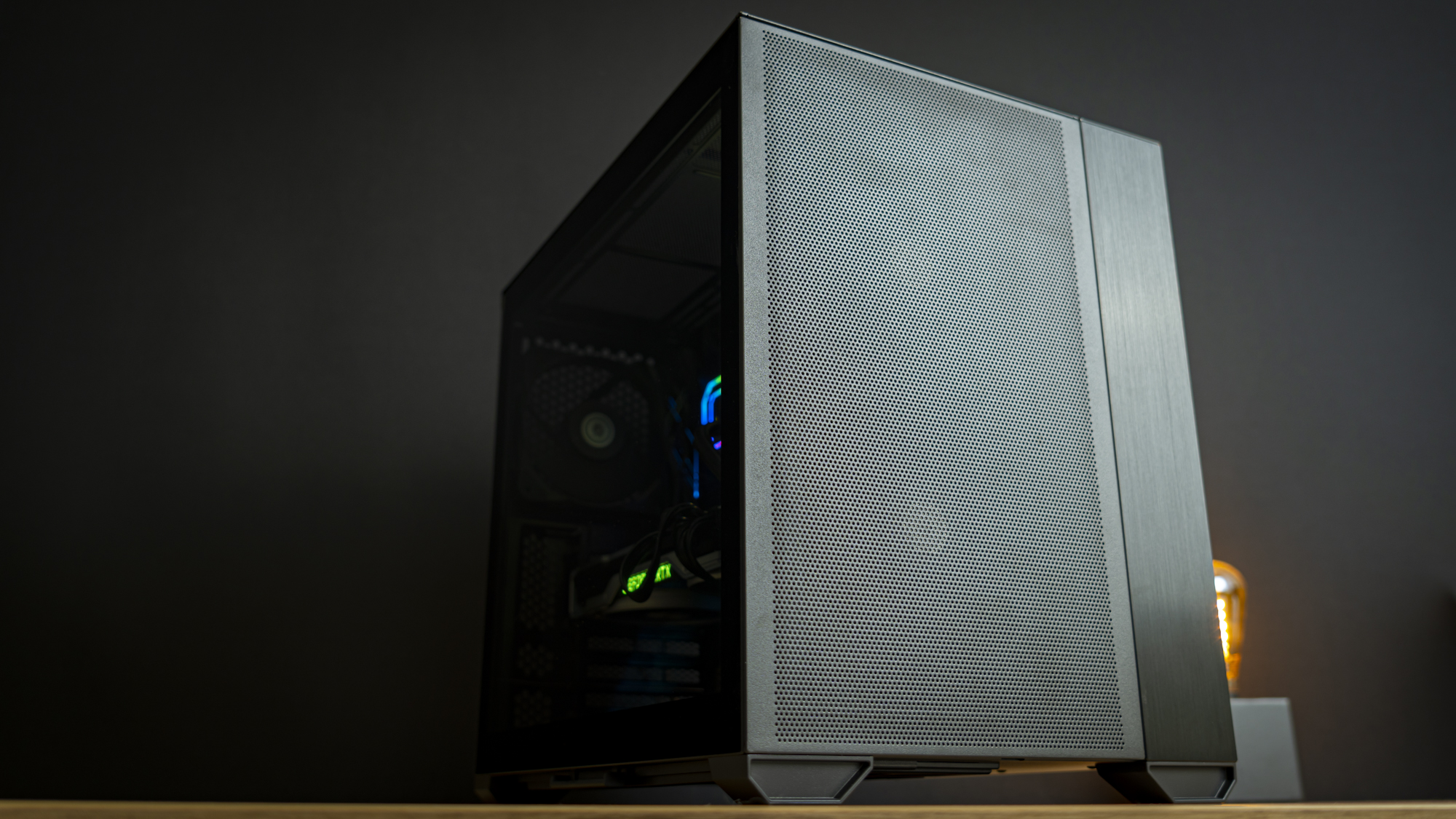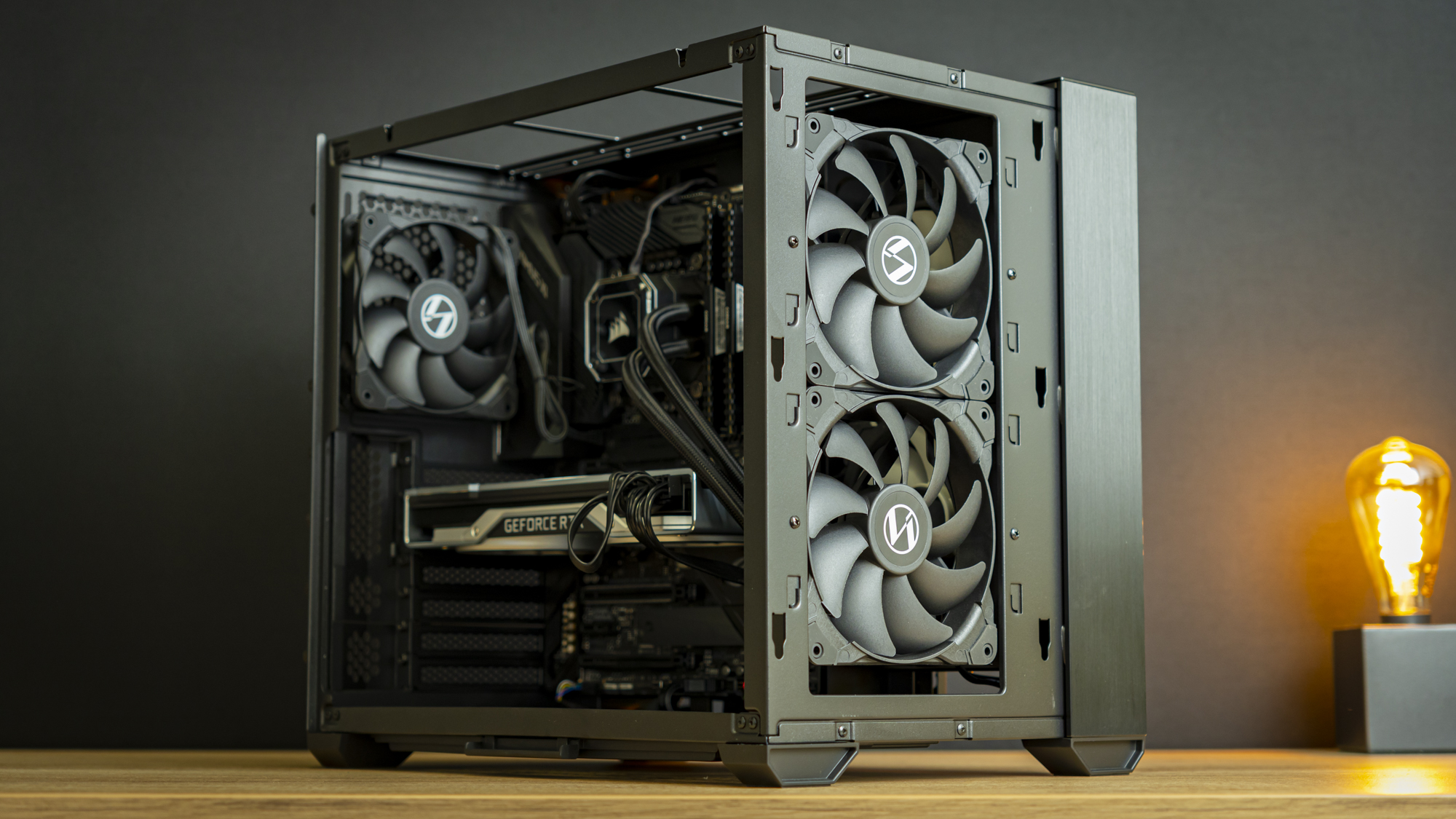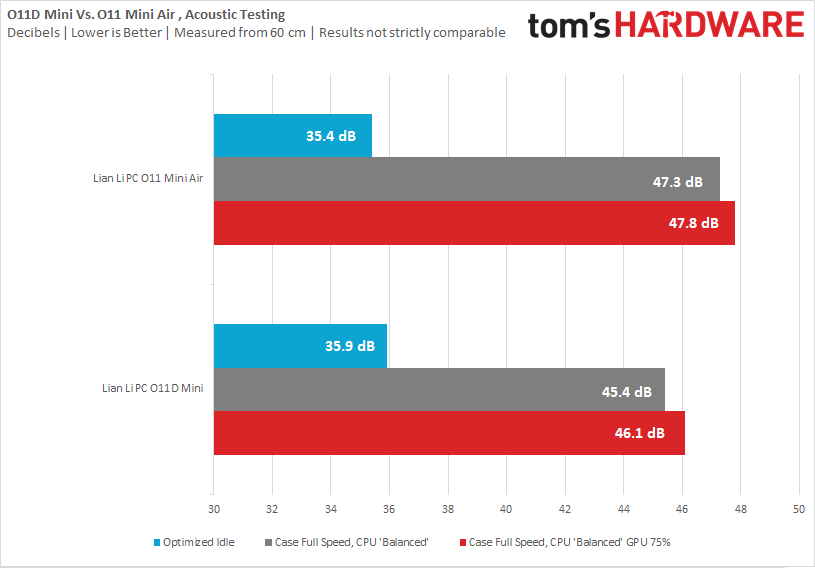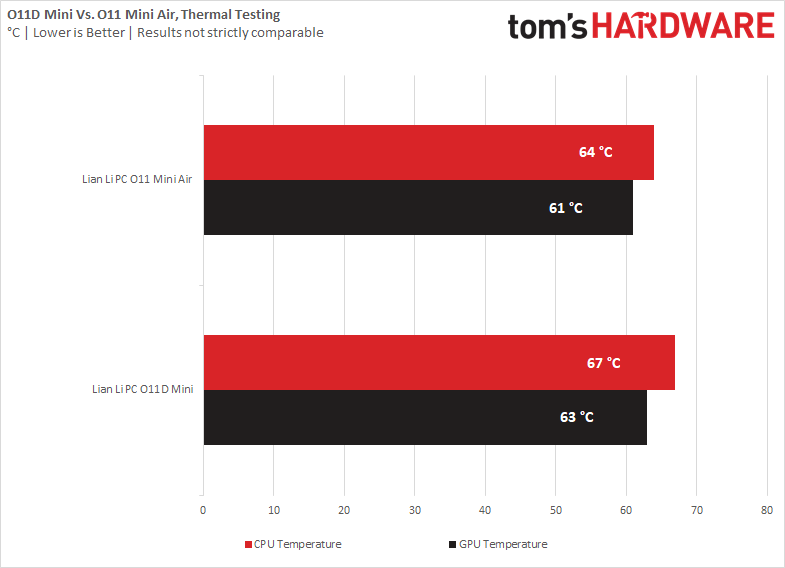Why you can trust Tom's Hardware
| CPU Clock | i9 9900k: 4.6 GHz (46x 100MHz) @ 1.1v |
| GPU Clock | RTX 2070 Super: Stock |
| GPU Driver | Nvidia GeForce 445.87 |
| Case & CPU Fan Speeds | 100%, AIO fans on 'balanced,' pump Maximum |
| GPU Fan Speeds | 75% |
Test Results
Both the 120mm and 140mm fans will start spinning at around 450 RPM, topping out at 1550 RPM and 1250 RPM, respectively. These are nice figures that offer a big enough cooling range, without getting too loud at the top end. All are PWM-controlled, which is very respectable, especially at the case’s price point.
Acoustic Results
For acoustics, I ran three tests: An optimized idle with all the fan speeds as low as they would get, a CPU load noise level with the CPU loaded up with Prime95 and iCue controlling the AIO’s fans at the ‘balanced’ profile, while the case fans ran at 100%, and a full system load with the GPU added at 75%.
Keep in mind that for the O11D Mini one year ago, I ran the aftermarket Corsair fans in the case fan positions at 50% duty, as otherwise they’ll spin at a wicked-fast 2300 RPM. This means that the results between the two tests aren’t strictly comparable – the O11 Air Mini’s fans spin faster, so noise levels are higher and cooling should be a little better.
These are higher noise levels than you’ll likely achieve. The GPU used here doesn’t run without the fans spinning at idle, and most do nowadays. Plus, the AIO fan speeds are, in all honesty, higher than necessary. iCue doesn’t let me adjust the PWM levels of the AIO’s fans, but with the same CPU, overclock, and the same ambient room temperature, the results are as close to comparable as I can make them.
Thermal Results
For thermal tests, I run the same tests as acoustics.
Unsurprisingly, because there is more airflow resulting from the higher fan speeds (and the mesh front), thermals are a little better with the Mini Air.
Again though, I have to emphasize that this testing isn’t consistent and I wouldn’t put too much weight on the results. The AIO used in the new model is different. The control mechanism for the AIO isn’t good for testing, because it doesn’t give me control over the fan speeds. The case fans and speeds are all different, and the GPU is still running on the same, old paste and is developing rattly fans – that’s why we’ve otherwise retired it.
Get Tom's Hardware's best news and in-depth reviews, straight to your inbox.
What I can say is that the O11 Air Mini has great airflow. The included fans offer plenty of performance and aren’t all too loud by themselves, and if picking between one case or the other, I wouldn’t consider their thermals in the equation unless you have such a high-TDP system that you need every bit of cooling you can get. And even then, it’s not as if the O11D Mini was inadequate. The O11 Air Mini just has one more intake and it comes with fans.
Conclusion

When I first received the O11 Air Mini, I didn’t think I would like it. After all, the standard O11D Air wasn’t as popular as the PC-O11 Dynamic, the company ditched the pretty glass panel, and often, included case fans just aren’t all that good.
But this couldn’t be further from the truth with the O11 Air Mini. I like the look of its front mesh panel more than glass, and it performs a smidge better. The included fans are actually reasonably good, and the case has a more practical interior with support for ATX power supplies, instead of being limited to SFX-only.
The end result of all its changes makes the Air Mini an entirely different chassis, all for the better. The O11 Air Mini is a great case that you can just pick up, throw a standard ATX system into, and call it a day. That was less the case with the O11D Mini -- and this new model looks and cools better. Overall, it’s a much more complete package.
Priced at $110 for the black variant, or $120 in white, the O11 Air Mini is a chassis that’s absolutely worth considering for your next build.
Niels Broekhuijsen is a Contributing Writer for Tom's Hardware US. He reviews cases, water cooling and pc builds.
-
Phaaze88 OMG. This one is awesome(to me).Reply
Mesh
Smaller footprint than the H500P Mesh I'm using
NH-D15S fits
ATX psu isolated from the main compartment
280mm gpu cooler can be mounted in the front
*drools -
vinay2070 I guess its totally subjective. I would rather have the psu at the bottom and have a slimmer case over wider footprint.Reply -
SkyBill40 I definitely like the look and size of this one. While I like my old (and still current) case, this one would allow me to move my newly built system from my existing floor standing ATX mid tower and place it into this one on top of my desk. No more dog hair getting into my filters. it also fits my DRP4 and a full sized ATX PSU, which is most excellent. The price is reasonable, too.Reply
Looks like something for me to keep an eye out for once NewEgg has them available. -
Tex61 "...unless you have tall RAM that creates clarence issues. "Reply
We have clearance, Clarence. :)



